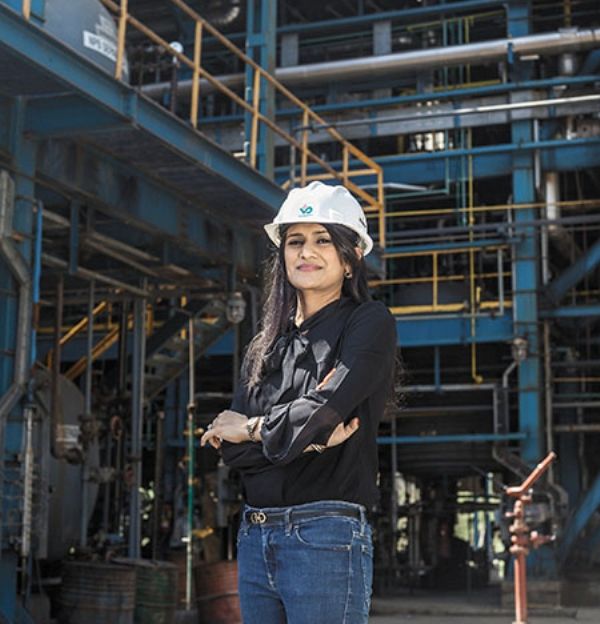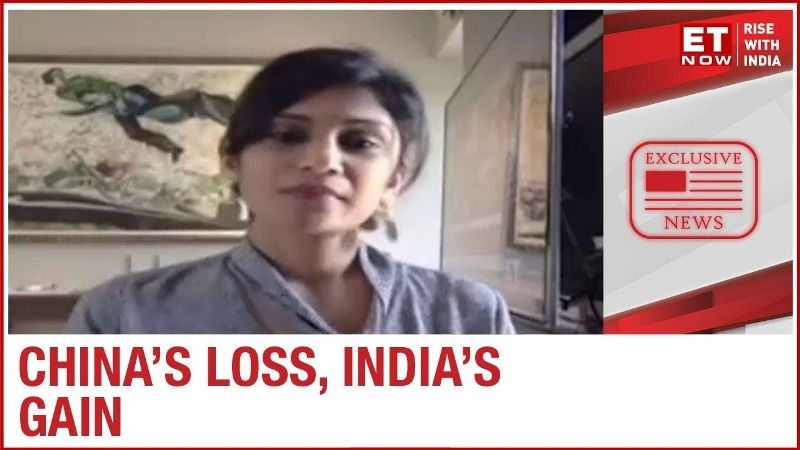Vinati Saraf Mutreja Age, Husband, Children, Family, Biography & More
| Bio/Wiki | |
|---|---|
| Profession | Businessperson |
| Physical Stats & More | |
| Height(approx) | in centimeters- 162 cm in meters- 1.62 m in feet & inches- 5’ 3” |
| Eye Colour | Black |
| Hair Colour | Black |
| Career | |
| Member | • The Entrepreneurs’ Organization (EO), a global non-profit organisation • Young President Organization (YPO), the global leadership organisation of extraordinary chief executives |
| Awards, Honours, Achievements | • Vinati Saraf Mutreja was chosen as the Outstanding Woman Business Leader for 2018 by the jury of The Economic Times Family Business Awards, 2019.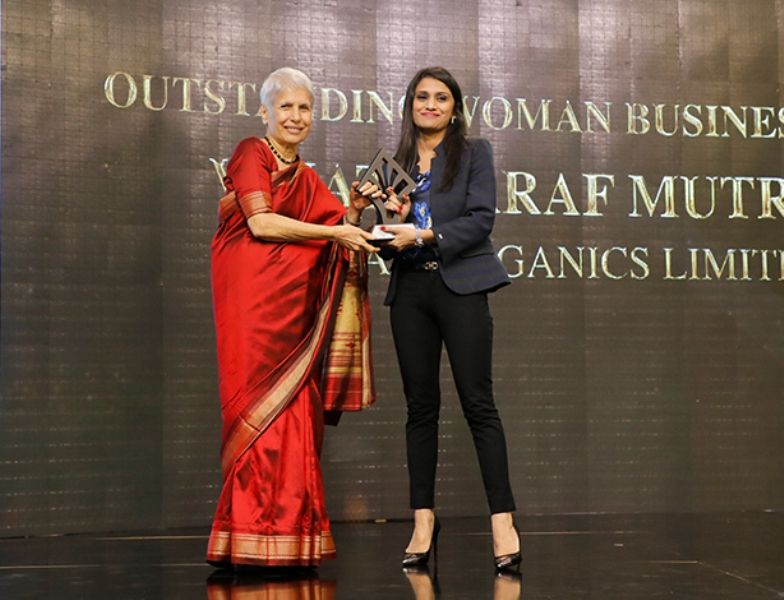 • She was listed in Forbes India W-Power Trailblazers and in the Economic Times Women ahead list in 2019. |
| Personal Life | |
| Year of Birth | 1984 |
| Age (as of 2021) | 37 Years |
| Nationality | Indian |
| College/University | • IMD Business School, Lausanne, Switzerland • University of Pennsylvania, Philadelphia, Pennsylvania • The Wharton School, Philadelphia, Pennsylvania • Harvard Business School, Boston, Massachusetts |
| Educational Qualification(s) | • Vinati received Executive Education at IMD Business School, Switzerland. • She earned a degree in Bachelor of Applied Science Engineering from the University of Pennsylvania in 2005. • She did Bachelor of science in Economics, Finance, and General from The Wharton School, Pennsylvania, in 2005. • She did an Owner president Mangement program at Harvard Business School in 2019.[1]Vinati Saraf Mutreja LinkedIn account |
| Relationships & More | |
| Marital Status | Married |
| Family | |
| Husband | Mohit Mutreja (runs an algorithmic trading firm that specialises in high frequency trading)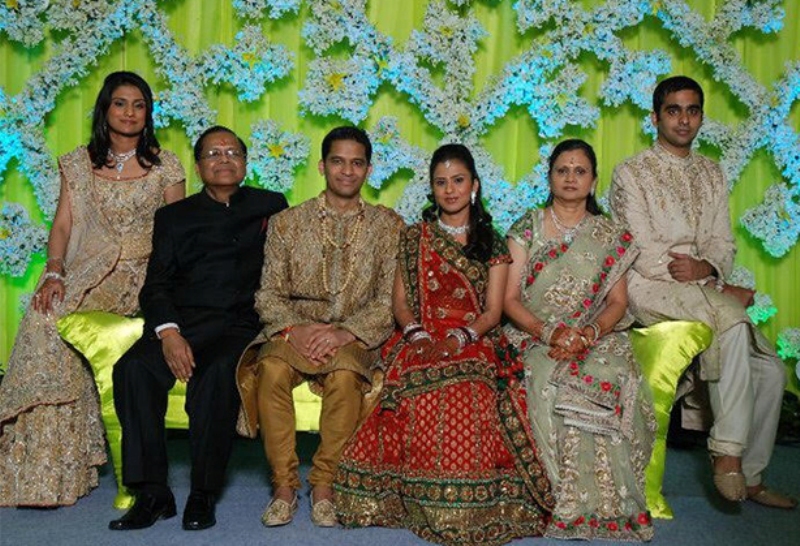 |
| Parents | Father- Vinod Saraf (Chairman,Vinati Organics Ltd)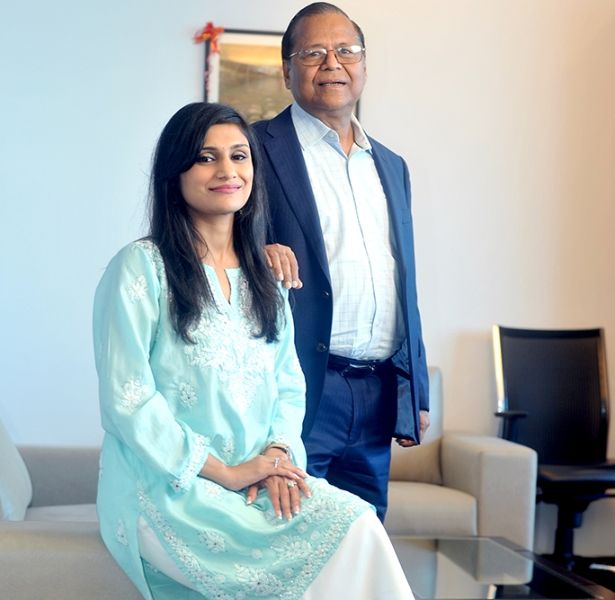 Mother- Kavita Saraf |
| Children | She has two children. |
| Siblings | Sister- Viral Saraf Mittal (She is a part of the management at Vinati Organics) |
| Favourite Things | |
| Books | • 'Bottle of Lies: 'Ranbaxy and the Dark Side of Indian Pharma' by Dinesh Thakur and Katherine Eban • 'Lean In' by Sheryl Sandberg |
Some Lesser Known Facts About Vinati Saraf Mutreja
- Vinati Saraf Mutreja is an Indian woman entrepreneur who joined the family business Vinati Organic Ltd (VOL) of her father in 2006. In 1990, Vinati’s father started VOL, a chemical manufacturing company. Apparently, after Vinati’s joining in 2006, the revenues of the company raised from Rs 66 crore to Rs 1,000 crore. Later, VOL went on to be listed by Forbes as one of Asia’s best 200 Billion Dollar companies under the leadership of Vinati Saraf Mutreja. Vinati Saraf Mutreja is the MD & CEO of Vinati Organics Limited.
- While growing up in a middle-class family, Vinati received lessons both on welfare education as well as the value of money. Vinati, as a teenager, started accompanying her father on board meetings and sales visits. Later, this exposure to the workplace, in meetings and sales, led her to pursue her studies in engineering, chemistry, and business at the University of Pennsylvania. In 2006, after completing her education in Pennsylvania, Vinati returned to India, and she was just 22 when she joined VOL.
- In an interview, Vinati said that she started learning different business functions in different departments from the day one of her return to India from Pennsylvania after completing her education. She said,
I started from the ground up spending time in different divisions and learning about different business functions.”
- Reportedly, after joining VOL in 2006, Vinati was given the challenge by her father, Vinod Saraf, to turn around their ATBS plant that was a part of VOL company from a loss-making unit to a world-class facility. It was done so that the ATBS unit, a chemical manufacturing plant, could take the global competition and make Vinati work independently in the business structure.
- In 2019, in an interview, Vinati explained the major turning point regarding the ATBS plant on which she was working as a management leader. She said that the ATBS plant was started in 2002, and it was not producing the right quality chemical products; therefore, her father was thinking of shutting it down or selling it off. She further added that there were only two other companies globally that were making the same chemical product that was manufactured at the ATBS plant. She explained,
We started the ATBS unit in 2002 and because we were not getting the right quality, we were thinking of shutting it down or selling it off. We were a small company then and had exhausted all our resources and expertise available. There are only two other companies making this product in the world. So we were in a fix since this was a niche market. But I managed to bring a consultant on board who helped streamline processes.”
- During Vinati’s work at the ATBS plant, she succeeded in connecting and fastening long-term contracts with global MNCs, independently. These MNCs gave her company (VOL) durable sales visibility. Until 2006, VOL was mostly dealing and selling its products in the Indian domestic market, but later, after Vinati’s joining the business, approximately 75 per cent of sales of VOL company were derived from exports.
- In an interview, Vinati said that her company (VOL) was focusing on cutting the costs and improving productivity through the best or most effective use of product batch timings during the production procedure that had resulted in increased capacity of manufacturing the products with minimum investment. She said,
We focused on cutting costs and improving productivity by optimizing the batch timings. This resulted in increased capacity with minimal investment. There was also the considerable effort put in for improving the quality by engaging international R&D experts which paid off.”
- In 2019, VOL’s unit ATBS became the largest portion of the company. Vinati said in an interview that better quality and high productivity with boosted sales expanded the working capacity of the ATBS plant. She said,
Better quality, higher productivity accompanied by annual contracts buoyed up sales and we started expanding capacity at regular intervals, usually pre-empting demand.”
- Reportedly, in 1991, Vinati’s family business held 26 per cent shares in VOL. In 2019, the shares gradually increased to 74.01 per cent under the leadership of Vinati Saraf Mutreja.
- According to Vinati, more budding women entrepreneurs can contribute to the field of manufacturing. In an interview, she said that we should encourage women to take up the engineering field, and the Indian women should not be hesitant to join the business field, and Vinati appealed to all the Indian companies and ventures to make the working environment more conducive to women. She narrated,
Women don’t see other women in this industry and are hence, hesitant to join. It is important to break this cycle so that when our daughters are in the workspace they don’t feel like a minority. Women bring in diversity and empathy and a different dimension to any discussion. We should encourage women to take up engineering and make our work space environment more conducive for them to thrive.”
- In 2019, VOl stood over Rs. 8,000 crore market capitalization in India. However, in 2006, this company had a market of approximately Rs. 20 crore. While sharing her experience with a media house, Vinati said that her vision was to increase the company’s footprints towards expanding the market potential all over the world. She said,
Our vision is to grow at 20-25 percent year-on-year, essentially double revenues in three years. We are still a very small company in the chemical space. Most mid-sized chemical companies have revenues of Rs 3,000/4,000 crore. We have better margins but need to increase our footprint since our existing products have limited market potential.”
- In an interview, Vinati said that she guided and directed the company VOL independently, which made it a giant venture later on and succeeded in exporting its chemical products globally. She felt proud by saying that she did not choose between giving preference to the family and a career because she was immensely supported by her family members. She said,
Most women I know give up work after having children. I enjoy my work and the faith our stakeholders have in me. This drives me to keep doing better.”
- In an interview, when Vinati was asked about the biggest deterrent to women while pursuing their careers, she said that self-inflicted bias was the biggest deterrent to women rising in their careers. She added that it was the only reason many people did not want to see women in senior leadership in many big business ventures. She explained the facilities her company VOL providing to the female employees. She said,
If we talk purely about the middle to upper-middle-class urban society most women take up a job after graduation. It is only at some point after starting a family that they succumb to the notion that they have chosen between having a career and having a family. This self-inflicted bias is the biggest deterrent to women rising in their careers and the reason why we don’t see many women in senior leadership. Apart from providing extended maternity leave, we provide flexible working hours to women in our organization. Simply by hiring more women than other factories we can make our environment more conducive to women. Finally, this can only change if men start taking more responsibility at home. This requires a cultural shift and our society will take some time to get there but we are moving in the right direction.”
- In an interview, when Vinati was asked about what she enjoyed most about work, then she said that she enjoyed reading about green and clean chemistry and making the chemicals. She said,
Coming up with innovative processes to make our niche chemicals. I enjoy reading about green, clean and lean chemistry. I take pride in our excellent record in the environment, health and safety.”
- In a conversation with a media house, when she was asked how she managed work and personal life, Vinati replied that she had learned how to balance work and life through her real-life working experiences in the office and at home; however, her most creative ideas came to her when she was in the office. She said,
Is actually easy to achieve if you stop believing in face time. My most innovative and out of box ideas have come to me when not in the office.”
- In an interview, Vinati was asked how companies could improve gender diversity at the top level of management. Vinati then replied that it was only through encouraging women to take up higher leadership roles in the management, and the companies must demonstrate to the women employees that quality time must be valued than quantity time while working. She explained,
Most women leave the workforce at some point after having children. To encourage women to take higher leadership roles, companies need to demonstrate that quality time at work is more valued than quantity time. Providing flexible work hours and reduced emphasis on after-hours networking are some ways organizations can achieve this.”
- Vinati Saraf Mutreja has often seen giving investment advice on renowned Indian business news channels.
References/Sources:



